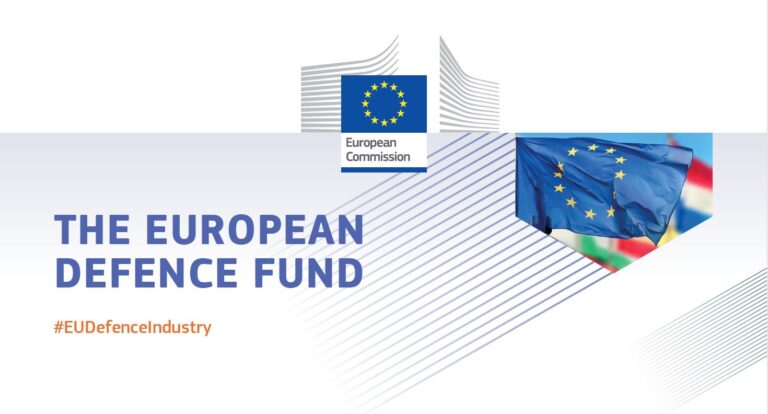Add to favorites:
Share:
This call focuses on the development of innovative naval hybrid propulsion and power systems that address both the environmental challenges of achieving carbon neutrality by 2050 and the demanding operational requirements of modern military vessels. It is driven by the need to overcome the limitations of carbon-neutral fuels such as hydrogen, ammonia, and methanol, which, despite being produced in an environmentally friendly manner, have energy density, safety, and toxicity issues that hinder their application on frontline warships. The call therefore emphasizes the development of propulsion and power systems that can efficiently use both expensive long-chain e-fuels and less energy-dense alternatives, while ensuring that performance criteria such as autonomy, survivability, and minimal noise and signature emissions are met.
The project is expected to deliver a prototype, testbed, and a comprehensive architecture for modular and hybrid propulsion systems, including integrated DC power systems. It calls for the navalisation of commercially available technologies such as electrical propulsion systems, SiC-based power electronics, DC grids, fuel cells, and high-capacity energy storage devices like Li-ion batteries, super-capacitors, and flywheels. A critical component of the initiative is the creation of a joint digital simulation environment that leverages data-driven methods and advanced modelling to simulate, test, and validate system performance under various conditions, including fault scenarios and dynamic energy loads.
In addition, the call requires detailed studies and simulations to analyze the behavior of DC grids in fault conditions, investigate standardized power quality requirements, and assess the impact of different energy conversion methods on mission profiles. These activities will support the development of advanced control strategies and AI-based optimization methods aimed at reducing fuel consumption and greenhouse gas emissions while maintaining optimal military performance. The project also focuses on ensuring that all components, from power sources to energy conversion systems, meet strict safety standards and are robust enough to withstand shock and battle damage.
The initiative will further integrate dislocated testing facilities across Europe with a combined digital twin and physical hardware-in-the-loop environment to validate new designs and methodologies. By benchmarking against established military requirements, the project aims to deliver systems that offer enhanced energy efficiency, reduced life cycle costs, and improved interoperability across a wide spectrum of naval vessels. This holistic approach is designed to accelerate the adoption of commercially developed technologies into military applications, ultimately contributing to cleaner, more efficient naval operations.
Opening: 18-02-2025
Deadline(s): 16-10-2025
Expected Outcome
- Accelerated adoption of advanced propulsion and power system technologies
- Prototypes of integrated naval hybrid propulsion systems
- Demonstrated improvements in energy efficiency and emissions reduction
- Enhanced system resilience with reduced noise and signature emissions
- Validated digital twin and physical testbed environments
- Standardized methodologies for DC-grid performance and safety
- Optimized fuel consumption and improved life cycle cost analyses
- Integration of commercial technologies into military applications
- Strengthened interoperability across diverse naval vessels
- Comprehensive research studies and technical benchmarks
Scope
- Develop a joint digital simulation environment integrating civilian and military research
- Establish an integrated DC power system architecture with robust fault protection
- Design modular, scalable hybrid propulsion systems for diverse naval vessels
- Conduct studies on energy conversion, greenhouse gas emissions, and fuel consumption
- Simulate DC-grid behavior under various fault conditions
- Investigate safety solutions for alternative fuels and energy-dense storage systems
- Optimize energy management using AI-based control strategies
- Validate prototypes using a combined digital twin and physical testing approach
- Benchmark designs against established military performance requirements
- Enhance interoperability and resilience of naval power systems
Partner Requests
Explore Real Collaboration Opportunities
🔍 As a logged-in member, you now have exclusive access to all active Partner Requests for this Funding Call.
See who’s looking for collaborators, explore exciting project ideas, and discover how others are planning to make an impact.
💡 Use these insights to get inspired—or take the next step and start a request of your own (first 3 entries for free).
Log in or registrate here for free.
Ask our experts about this call
Connect with the Listing Owner!
💬 Please log in now to send a direct message to our experts and ask your questions. Not a member yet? Sign up for free and start connecting today!
Related Funding and Finance Opportunities
Unlock Exclusive Funding Opportunities!
🔑 Get instant access to tailored funding opportunities that perfectly match your needs. This powerful feature is exclusively available to our premium members—helping you save time, stay ahead of the competition, and secure the right funding faster.
Upgrade to Premium now and never miss an important opportunity again! Already a premium member? Log in here to explore your matches.
Related Innovation Offers
Discover Tailored Innovation Offers!
🚀 Gain access to technology solutions that match your specific needs and interests—carefully selected to support your innovation goals. These offers are exclusively available to our premium members, helping you identify relevant technologies faster and start the right conversations with potential partners.
Upgrade to Premium now and explore your personalized technology matches today! Already a premium member? Log in here to view your tailored offers.
Related Knowledgeable Resources
Discover More with Premium: Related Knowledge Resources
🔒 You’re missing out on expert-curated knowledge specifically matched to this topic. As a Premium member, you gain exclusive access to in-depth articles, guides, and insights that help you make smarter decisions, faster.
Whether you’re preparing a funding proposal, researching a new market, or just need reliable information—our Premium knowledge matches save you hours of research and point you directly to what matters.
Upgrade to Premium now and instantly unlock relevant knowledge tailored to your needs! Already a member? Log in here to view your personalized content.

